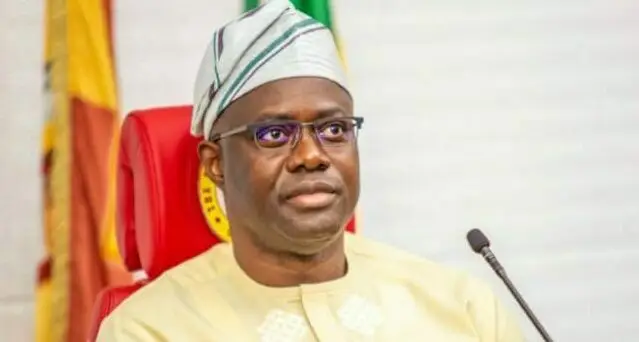As responses to the Supreme Court’s ruling on local government autonomy continue to flow in, Seyi Makinde, the governor of Oyo State, says his administration would not let the state’s citizens suffer as a result of the decision.
The governor appointed two committees on Monday to study the Supreme Court decision on local government autonomy and make recommendations to guarantee that the move does not have a negative impact on the state’s residents.
Makinde contended that the decision has created a constitutional gap that will raise many difficulties at the local government level.
He stated that while he supports transparency in councils, the Supreme Court decision “is not a silver bullet that will wash away” Nigeria’s problems.
Makinde stated this during an Advisory and Consultative Committee Meeting of stakeholders in the local government system, noting that he convened a meeting of all relevant stakeholders in the local government system so that they could outline the major challenges at the councils and develop solutions to ensure a smooth implementation of the process.
Governor Agbu Kefas emphasized his administration’s proactive approach to governance, including conducting two council elections to avoid the use of caretaker committees, clearing backlogs of debts owed to workers and pensioners, and addressing infrastructure deficits in primary healthcare and local roads.
The meeting, held at the Executive Chamber of the Governor’s Office in Agodi, Ibadan, was attended by council chairmen, and leaders from the National Union of Local Government Employees (NULGE), Nigerian Union of Teachers (NUT), Nigerian Union of Pensioners (NUP), Nigeria Labour Congress (NLC), Trade Union Congress (TUC), as well as representatives from various Ministries, Departments, and Agencies involved with the local government system.
Governor Kefas stated, “I called this meeting because, although we have not yet seen the Certified True Copy of the Supreme Court judgment, we must be proactive in discussing the financial autonomy of local government councils. I believe a gap exists between the decision and the constitution of the Federal Republic of Nigeria, which we must address.
“The law is the law, and when conflicts arise, we should seek judicial resolution. However, we must also develop homegrown solutions to ensure transparency and protect our people from suffering. When two elephants fight, it is the grass that suffers.”
Governor Kefas noted that his administration inherited a local government system burdened with unpaid salaries, gratuities, and pensions.
“Oyo State will emerge stronger from this. We know what is best for our people,” he said. “Before we took office, leave bonuses were last paid in 2017. We have since paid for 2018 through 2023. Primary Health Care facilities and inner roads were in poor condition, but we have worked with local governments to deliver the benefits of democracy to our people.
“We cleared salary arrears, paid N18bn in pensions and gratuities, upgraded 209 PHCs, equipped 264 more, completed 60 model schools, constructed and renovated hundreds of primary school classrooms, and repaired various roads. However, challenges remain. We still face a backlog of gratuities and pensions, with local governments owing about N55bn. We are developing infrastructure to boost the economy and improve living standards.”
Following the closed-door meeting, Oyo State Commissioner for Local Government and Chieftaincy Matters, Hon. Ademola Ojo, informed the press that two committees set up by the governor have four to six weeks to devise homegrown solutions to address the issues arising from the Supreme Court judgment.
Additionally, Attorney-General and Commissioner for Justice Biodun Aikomo praised the governor’s proactive steps, stating that these measures would help mitigate any potential crises resulting from the judgment. He highlighted the governor’s dedication to the welfare and development of the people of Oyo State.



